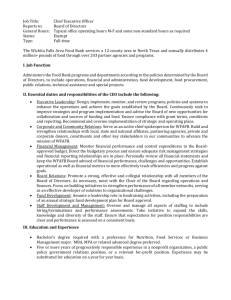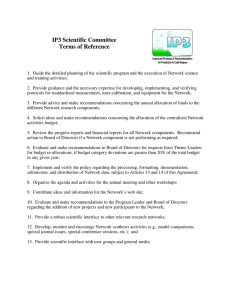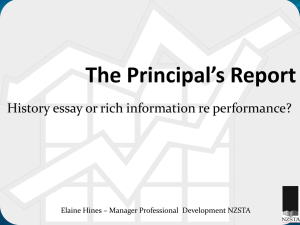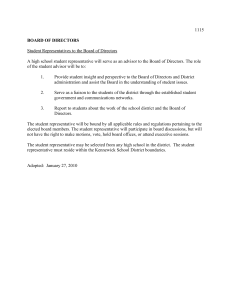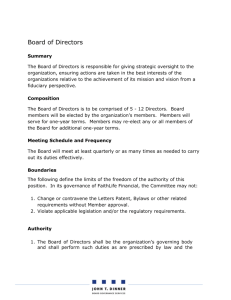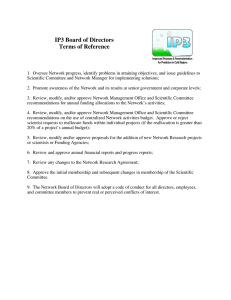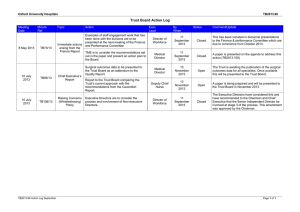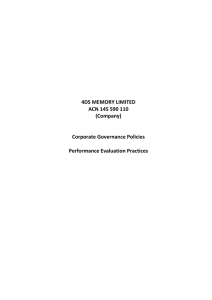board efficiency
advertisement
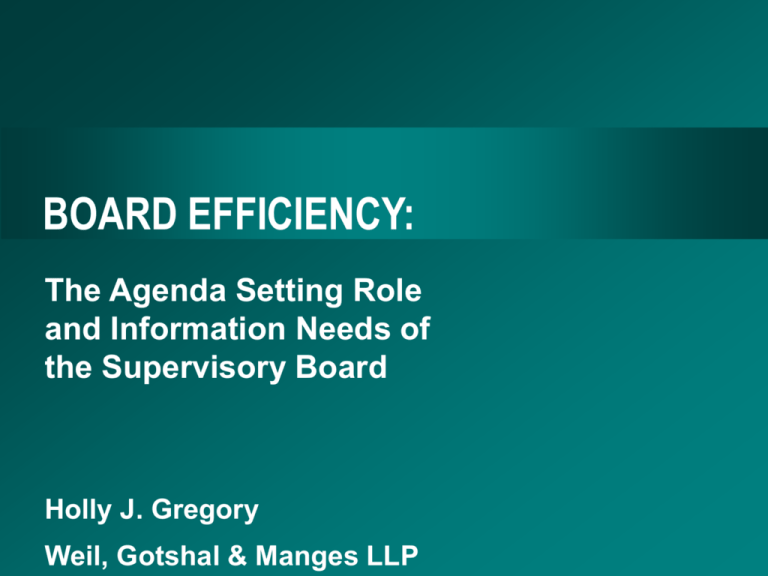
BOARD EFFICIENCY: The Agenda Setting Role and Information Needs of the Supervisory Board Holly J. Gregory Weil, Gotshal & Manges LLP Board Challenge: Direct the affairs of the corporation in assembling capital, human resources and other necessary inputs to produce goods and services efficiently While holding managers accountable for the use of assets provided by others 2 Predicates for Board Efficiency Composition - Independence, Expertise Committee Structure Board Agenda Board Access to Information Board Self-Evaluation 3 Board Functions Select, monitor, evaluate, compensate and -- when necessary -- replace senior management Review and approve strategic and long-term plans Monitor corporate performance against plans Review and approve material capital allocations, financial standards and policies Ensure financial control and reporting integrity, ethical standards and legal compliance Monitor constituent relations Organize the board 4 Information Relevant and timely information is an essential predicate for satisfying the board’s role 6 Common Information Needs Corporate Performance Background & Analysis of Major Issues/Transactions Related Party Transactions & Potential Conflicts of Interest 7 Integrity of information depends on : Financial information and reporting systems Legal compliance and risk assessment systems 8 Board & Management Interaction When does the board expect to be informed by management of potential problems? When does the board meet without members of management present? When does the board conduct independent investigations and hire its own experts? 9 Issues for Board Reflection & Evaluation Division of authority between the board and management Matters for the board agenda Number and composition of committees Information required by the board and its committees Performance of CEO and board evaluation Qualifications for director nominees Form of independent leadership Limitations on director service -- etc. 10 Seven Practices to Assist Board Function Chief Justice Norman E. Veasey Delaware Supreme Court A “heavy majority of purely independent directors” Board involvement in “actual governance” Regular face-to-face, comprehensive meetings of directors Regular evaluation of CEO and regular “executive” sessions of independent directors Limits on number of boards directors serve on “Careful review of disclosure documents” Effective law compliance programs monitored by the board 11

